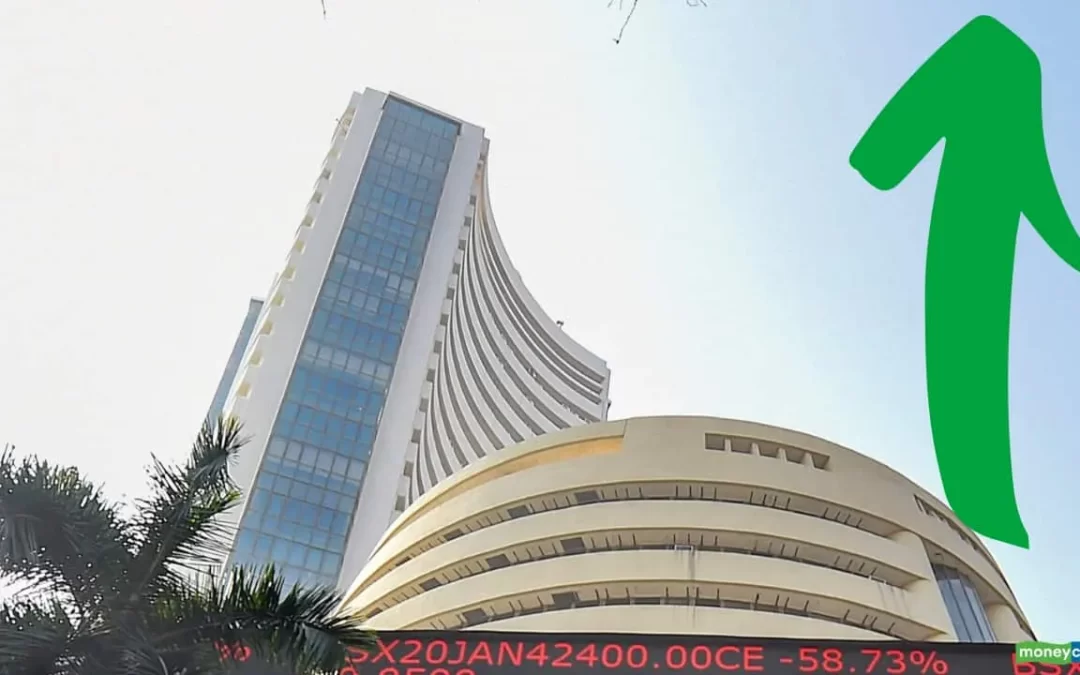”India’s stock market showcased remarkable resilience throughout FY24, defying initial projections of a downturn triggered by inflationary concerns, escalating interest rates, and apprehensions of a looming global recession. Even geopolitical tensions only caused temporary setbacks. The market’s resilience shone through, navigating these challenges with maturity,” said Sunil Nyati, Managing Director, Swastika Investmart Ltd
Mumbai:
Riding on a bull run, equity investors became richer by Rs 128.77 lakh crore in the 2023-24 fiscal, driven by robust fundamentals of the Indian economy, increased investment inflows and promising corporate earnings.
After a muted performance in 2022-23, equity markets made a remarkable recovery in FY24, giving handsome returns to investors.
The 30-share BSE Sensex climbed 14,659.83 points or 24.85 per cent in 2023-24. The benchmark hit its all-time high of 74,245.17 on March 7.
Mirroring bullish investors’ sentiment, the market capitalisation (mcap) of BSE-listed companies soared by Rs 1,28,77,203.77 crore to Rs 3,86,97,099.77 crore in FY24.
”India’s stock market showcased remarkable resilience throughout FY24, defying initial projections of a downturn triggered by inflationary concerns, escalating interest rates, and apprehensions of a looming global recession. Even geopolitical tensions only caused temporary setbacks. The market’s resilience shone through, navigating these challenges with maturity,” said Sunil Nyati, Managing Director, Swastika Investmart Ltd.
The market capitalisation of BSE-listed firms hit an all-time peak of Rs 394 lakh crore on March 2 this year.
”This year, the tables turned, with retail reaping the rewards while foreign investors watched enviously from the sidelines. This success signifies a shift in maturity, a growing belief in India’s long-term potential, and a newfound resilience in the face of market fluctuations. Retail investors, no longer prone to panic during corrections, are confidently holding onto their investments, ready to ride the wave of India’s economic ascent,” he said.
On the last trading day of the 2023-24 fiscal, the 30-share BSE benchmark jumped 655.04 points or 0.90 per cent to settle at 73,651.35. ”The surge in the Indian equity market can be attributed primarily to the robust fundamentals of the Indian economy, resilient in the face of global challenges. A key driver has been the anticipation of sustained political stability and the likelihood of additional economic reforms, coupled with the assurance of interest rates reaching their peak.
”Notably, the market has been buoyed by the continuous strength of domestic liquidity, providing a robust cushion capable of supporting the market during any temporary declines. This confluence of positive factors has created a favourable environment for investors, instilling confidence and reinforcing the upward trajectory of the Indian equity market,” Nyati added.
In 2022-23, the market capitalisation of BSE-listed companies fell by Rs 5,86,605.38 crore to Rs 2,58,19,896.00 crore.
The BSE benchmark had climbed 423.01 points or 0.72 per cent in 2022-23.
”The Indian equity market gave very good returns in the financial year 2023-24 despite geopolitical tensions, central bank rate hikes, and rising oil prices. During the financial year, IPO activity increased, especially for small and medium-sized companies (in the SME sector), which increased investors’ interest. Retail investors’ equity investments have increased dramatically in India during the last ten years, primarily through mutual funds,” Arvinder Singh Nanda, Senior Vice President, of Master Capital Services Ltd, said.
”The Indian economy is expanding faster than anticipated; FY24 GDP growth is probably going to be about 7.6 per cent, which is significantly faster than the growth of other major economies. This will help corporate profitability, which will, in turn, help the stock market,” Nanda said.
Investors’ wealth jumped over Rs 59.75 lakh crore in the 2021-22 fiscal. ”In FY24, the Indian equity markets saw notable growth, with key indices like the BSE Sensex and sector-specific indices such as realty, power, capital goods, and auto posting substantial gains. This reflects the overall market optimism fuelled by robust economic indicators, favourable government policies, increased investment inflows, and promising corporate earnings. ”FY24 marked a period of significant expansion and prosperity for the Indian equity markets, showcasing resilience and attracting heightened investor interest amid a dynamic economic landscape,” Suman Bannerjee, CIO of hedge fund Hedonova, said.
Reliance Industries is the most valued domestic firm by market valuation with a mcap of Rs 20,14,010.63 crore, followed by Tata Consultancy Services (Rs 14,05,102.38 crore), HDFC Bank (Rs 11,00,184.60 crore), ICICI Bank (Rs 7,69,472.43 crore) and Bharti Airtel (Rs 6,99,081.86 crore) in the top five order. Reliance Industries Ltd (RIL), on February 13 this year, became the first Indian company to achieve a market capitalisation of Rs 20 lakh crore.
”In FY24, the market rally was propelled by a combination of factors, including government initiatives supporting various sectors and ample liquidity from foreign and domestic institutional investors. These initiatives played a crucial role in boosting investor confidence and driving market sentiment,” Bannerjee noted. The upcoming general elections, with a high likelihood of the current government’s re-election, could bring stability. Additionally, June might see the start of interest rate cuts in both the US and India, followed by India’s potential inclusion in a global bond index. Later in the year, the monsoon season and corporate earnings will be key factors,” Nyati said.

